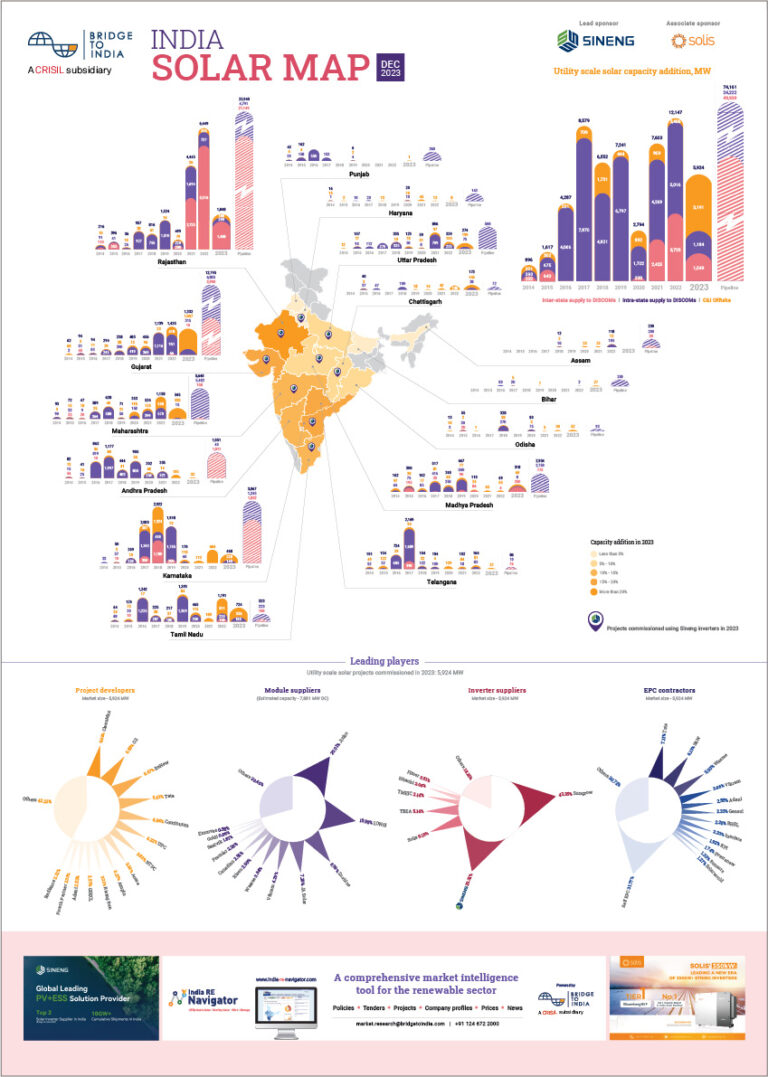International Solar Alliance (ISA) was launched at the climate summit in Paris on 30th November 2015 amid much fanfare with membership from the solar resource rich countries lying between the Tropic of Cancer and the Tropic of Capricorn. ISA has set out lofty ambitions to accelerate development and deployment of existing clean solar energy technologies in these countries. A total of 121 countries agreed to join the alliance and India took up the chair, showcasing itself in a leadership role (refer) along with France as the founding partner.
- India has offered funding for off-grid demonstration projects and some administrative support, but as a founding member and a leading proponent in the sector, it needs to put in more effort to create a practical roadmap for ISA
- Progress so far is underwhelming and it appears that ISA is lacking clear thrust and definition of its organisational objectives
- To gain a voice in the fight against climate change and become a meaningful partner for developing countries, ISA should aggressively garner more funding, build a competent organization and consolidate other international initiatives under its unified umbrella
In the eight months since its inception, ISA has held three international steering committee meetings in Paris (refer), Abu Dhabi (refer) and New York (refer) and the interim administrative cell has also met a few times. The World Bank Group has signed an agreement with ISA and offered to mobilize USD 1 trillion in investments in solar energy by 2030 and the United Nations Development Programme has also offered to collaborate with ISA. India has offered to train 450 officers from ISA countries and provide funding of USD 15 million for off-grid solar demonstration projects in member countries. In addition, Confederation of Indian Industry and Terawatt Initiative (launched by Engie at COP21 specifically to support ISA) will be helping organize global investment meets similar to India’s RE-Invest Summit in Peru, Kenya and Indonesia during 2017.
Overall, while ISA is a very laudable concept, progress so far is underwhelming and it appears that ISA is lacking clear thrust and definition of its organisational objectives. It is also clear that ISA needs stronger commitment from partner countries and substantial funding support to become an important agent in the fight against climate change. Without these things, the organization may come to be seen as a gimmick and risk fading into oblivion.












